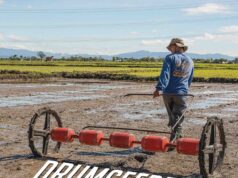The recent news on the Philippines’ big jump in the Global Innovation Index (GII) ranking for 2019, from 73rd to 54th, says much of the country’s progress in terms of its innovative performance.
Innovation programs initiated by the Department of Science and Technology (DOST) are seen as significant contributing factors in the Philippines’ improved ranking in the GII.
One of these programs is the establishment of Regional Inclusive Innovation Centers (RIICs).
The RIIC is an enabling platform where government, education, and industry players in the regions collectively pursue market-oriented researches that address issues and industry needs in the regions. It builds upon existing elements within the country’s innovation ecosystem such as DOST’s technology business incubators and DTI’s shared services facilities, among others.
“The effort of bringing together relevant stakeholders of the Regional Inclusive Innovation Center (RIIC) initiative brings in different flavors but in the end, works toward the same goal—to make innovation work not just for science and technology, but for everybody,” Department of Science and Technology (DOST) Undersecretary for Research and Development (R&D) Dr. Rowena Cristina L. Guevara remarked.
The DOST, in partnership with the Department of Trade and Industry (DTI) and with the cooperation of the Commission on Higher Education (CHED), Department of Education (DepEd), Department of Agriculture, Department of Information and Communications Technology, National Economic and Development Authority, is further advancing science, technology, and innovation in the regions through the RIICs.
“R&D triggers job creation and is key to achieving inclusive growth. Thus, through the RIIC, we in the government and our partners in the academe and industries joined forces to create a more robust innovation and R&D ecosystem in the regions,” said Undersecretary Guevara.
Each RIIC synergizes innovation activities of the multiple stakeholders in the region where it is established—including universities, government institutions, S&T parks, R&D centers, startups, small and medium enterprises, large enterprises, and funders.
The RIIC is the key recommendation of the Inclusive Filipinnovation and Entrepreneurship Roadmap. Since 2018, initiatives to pilot the RIICs in the Bicol, Central Visayas, Northern Mindanao, and Southern Mindanao regions have been carried out, together with DOST’s innovation programs.
RIIC’s early successes
Less than a year after RIIC was conceptualized, stakeholders are happy to report the significant strides under the initiative. In Northern Mindanao, OROBEST or the ‘Optimizing Regional Opportunities for Business Excellence through Science, Technology, and Innovation’ was launched in July 2019 as an initiative of the Oro Chamber of Commerce and the DOST-Region X, in partnership with DTI-Region X and local universities.
OROBEST seeks to enhance regional industry productivity and competitiveness through the adoption of scientifically-developed technologies. The team implementing OROBEST has started to do industry needs assessment and is identifying local universities’ researches and outputs that may be relevant to local businesses.
In Region XI, stakeholders have provided a strong voice toward the adoption of the RIIC in the region’s development agenda, and in setting the region’s sectoral focus on functional foods and processed foods. The DOST is currently developing an R&D information system to match and support the local banana industry. Meanwhile, in Region VII, key players of the RIIC initiative agreed to focus on R&D and innovation activities that will level up the region’s semiconductor and electronics industry.
In parallel, DOST approved a PhP 46 million grant for Bicol University to put up the Pili NICER (Niche Centers in the Regions for R&D) Lab, which is intended to boost R&D in pili production, processing, and product development.
Everyone has a role
Through its Science for Change Program (S4CP), the DOST plays a pivotal role in providing the resources needed to support collaboration in the region’s R&D processes and infrastructure.
The DTI, for its part, works to foster a dynamic entrepreneurship culture that will speed up the commercialization of R&D outputs. As producers of knowledge, higher education institutions spearhead the researches, while agencies such as the CHED, DepEd, and TESDA (Technical Education and Skills Development Authority) help ensure that the country’s human capital are adequately trained particularly in the fields of science, technology, and entrepreneurship. The industry is critical, not only in identifying industry needs and market demands, but also in terms of bringing investments and commercializing R&D outputs.
Indeed, as Usec. Guevara has said, each stakeholder brings in a different flavor in sustaining the dynamism needed for R&D and innovation activities. The initial work and successes made by the RIIC aptly demonstrate how each of these flavors represent the critical role of each partner in the innovation ecosystem.





